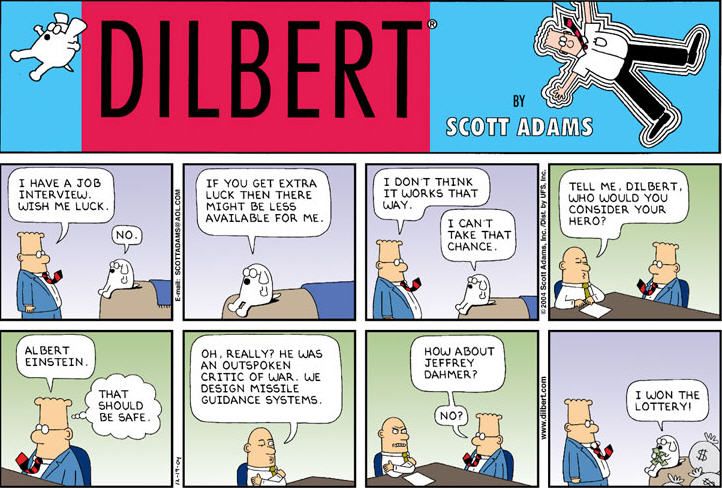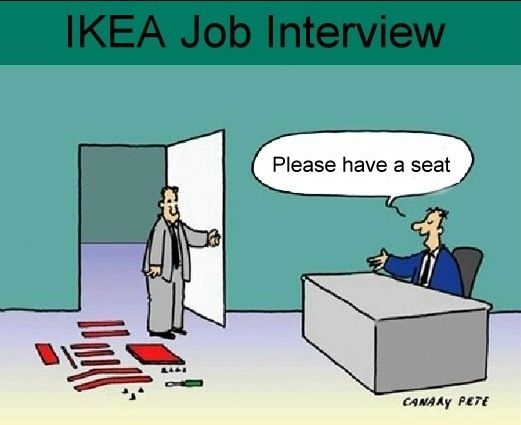Who is That Looking Back at You?

Networking Groups
In addition to seeking out colleagues, friends, current and former business associates, members of professional organizations, alumni associations, and any other contacts that might know about the company or individuals with whom you will be interviewing, networking groups can be a very effective source of information.
Members could refer you to associates employed at the company’s banks, accounting firm, investment bankers, customers, suppliers, or they might know classmates, neighbors, or friends of key management staff. The challenge of finding insider contacts is not as daunting as you might think.
George was a member of a financial networking group comprised of financial analysts, controllers, and chief financial officers. He attended regular biweekly meetings and had gotten to know many of the forty members who are actively looking for new jobs. These are people he can trust. As part of his preparation for an upcoming interview, George decided to ask if anyone in the group had a contact at the company where he had an upcoming interview. At the meeting, he asked the members to respect his confidence and not to discuss the situation outside the room. Three members referred excellent sources. George spoke with each referral and he played his inside information very effectively during the interview.
This is a common occurrence with networking groups, and job seekers can derive tremendous benefits through membership in selected groups. It would be a major coup if you were to be referred to a person who worked, or works, at the company. Imagine if you were to find a former incumbent who is now at another company! Someone at a competing organization could be equally valuable. Another prize would be someone who interviewed at this company for the same or similar position. Be diligent and persistent in obtaining information about the company with which you will be interviewing.
What to Do with a Networking Connection
All of this contact information is powerful. It can uncover interviewer personalities, company culture, and an almost limitless number of facts for use during an interview. There is an issue to consider if the contact is an employee of the company or a close personal friend of an employee. Consider a worst-case scenario even if you request the person to keep your meeting confidential. How might your candidacy be affected if the interviewer scheduled to meet you uncovers the fact that you met with an employee to extract company information?
You should assess the extent to which you can trust your source. On the positive side, an inside contact could be the proverbial pot of gold at the end of the rainbow. You could learn the real scoop that helps you get a second interview. If you find out that one of your interviewers has a terrific sense of humor, then you might want to inject a bit of humor during that interview. If the interviewer is said to be a conservative, serious person, then you will want to be very business-like. If you decide against reaching out to the employee contact before the first interview, you can reassess the situation before the second or subsequent interview, if you get past the first one.
Elevator Drill
An important element of preparation is a two-minute and a thirty second version of your background and skills supporting the position being sought. The drill is recited upon being introduced to interviewers and other players anywhere, anytime, even during a brief elevator ride. The new acquaintance you met on the fifth floor could be your next boss. This introduction should be well rehearsed and continuously focused and refined. The following are the elements that should be included in the elevator drill:
- Names of a Few Companies Where You Recently Worked, Particularly if the Companies Are Recognized and Well Known. Working previously for a prestigious company creates the perception that the job seeker passed a tough professional test and obtained credible experience.
- Industries in Which You Have Experience (e.g., Consumer Goods, Technology, Healthcare). Stating one or two industries in which you have in-depth knowledge would be a big plus, especially if the person you are speaking with works in one.
- Functional Position—Type of Position Being Sought (e.g., Web Developer, Controller, Engineer, Trainer, or Chief Executive Officer). Support the desired functional position by stating two or three strengths that are widely understood and marketable (e.g., for human resources: expertise in benefits, compensation structure, and 401-K administration).
- Unique Qualification—Factors that Differentiate You from Competitors. This is an opportunity to differentiate you from competitors by citing experiences or credentials that provide a competitive edge over other job seekers. Some examples include a combination of Fortune 500 and entrepreneurial experience when applying to a small firm, foreign language skills when approaching an international firm, or a recognized certification, such as the Certified Public Accountant (CPA) or Certified Management Consultant (CMC) designations.

Do I Ask Questions?
Yes! However, you should be in sell mode and convince interviewers that you have value to add and your previous experiences can satisfy what the company needs. Your goal in the first interview is to ask questions that show your interest and understanding of the position requirements. Establish rapport and impress interviewers before walking on the question tightrope. As part of preparation, identify three or four questions that focus on clarifying the requirements of the position so that you can respond
with your relevant experience. A by-product of preparing for the interview
and asking questions is that the information you gather can be used as the basis for subsequent due diligence. Examples of questions you might ask during the interview could be: What would you view as a major accomplishment in the first six months? or Which departments does the position interact with? A key principle is to resist the urge to ask questions that have even a remote appearance of being due diligence related, for example, how many vacation days, what are your financial projections, and
what is the personality of the person my position reports to. Asking
questions aimed at due diligence in early interviews will likely kill your
candidacy. These questions could embarrass interviewers because the
answers may reveal an inability to raise capital, an unprofitable business, employee morale problems, or other sensitive disclosures. All such questions are too presumptuous and probing and should be asked after an offer is received, at which time you have every right to be informed of such critical information. Besides, these questions distract interviewers from assessing your experiences and skills.
Anticipate Questions to Be Asked
Every interview is filled with questions for the job seeker. Anticipate questions you might be asked about your industry, its trends, recent developments and current news items. Drilling down into the foundation of your functional and technical skills is an approach taken by some interviewers.
Go to the company’s web site and review open jobs they are trying to fill. Identify common job requirements and be sure to prepare for any questions that might be related to those skill requirements found in more than one job description. Review publications that list hundreds of possible interview questions. Identify a manageable number of most likely questions, list them with your planned response and practice reciting your answers in a natural, unrehearsed manner.
Practice, Practice, Practice
The best way to become proficient with interview techniques is to practice being a job seeker in an actual or simulated interview situation.
Most job seekers have limited interviewing experience and should not use a real job interview as a practice session. This a great opportunity to seek help from a friend who is a recruiter, human resources executive, or hiring manager with considerable interviewing experience. Create a situation where you are interviewing for a job and your friend is conducting the interview. At the conclusion of the session, both of you will identify areas that require additional practice. Some examples might be to increase direct eye contact, speak with a confident voice, avoid slouching, be more animated, and appear more interested. An even better approach is to rehearse using a video camera. Viewing the playback, everyone is surprised at how they sound and appear on screen, and additional areas for improvement usually are apparent with this technique. An improvement on this approach is to ask four or five friends to watch the videotaping and playback. You will get the most honest feedback from good friends. You are now ready for your first interview!
Links to Related Related Articles:
Perfecting Your Job Hunt - Part 1
Perfecting Your Job Hunt - Part 2
Perfecting Your Job Hunt - Part 3
Other Useful Links:
How to turn your network into a contact
